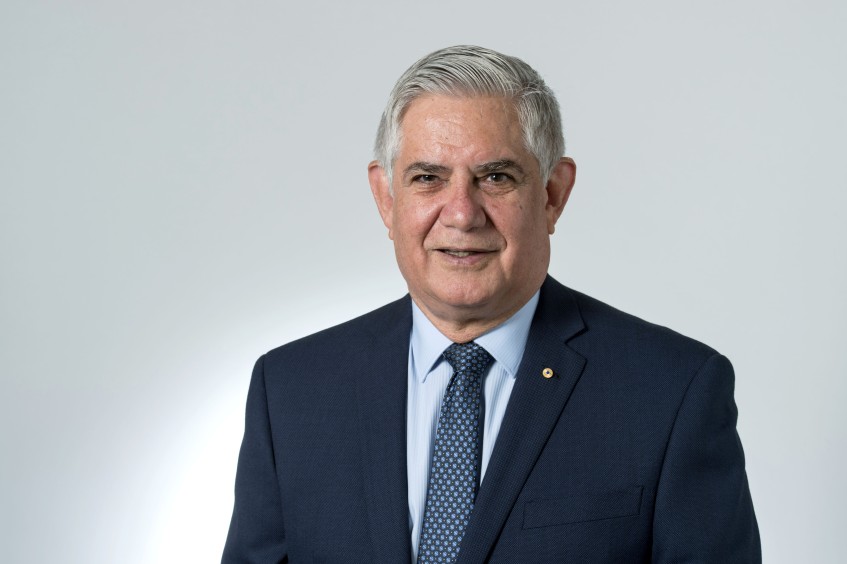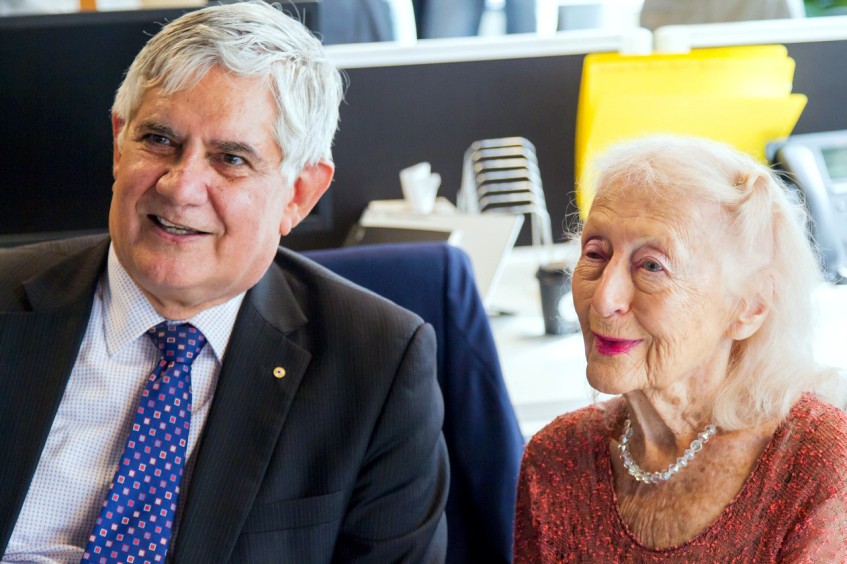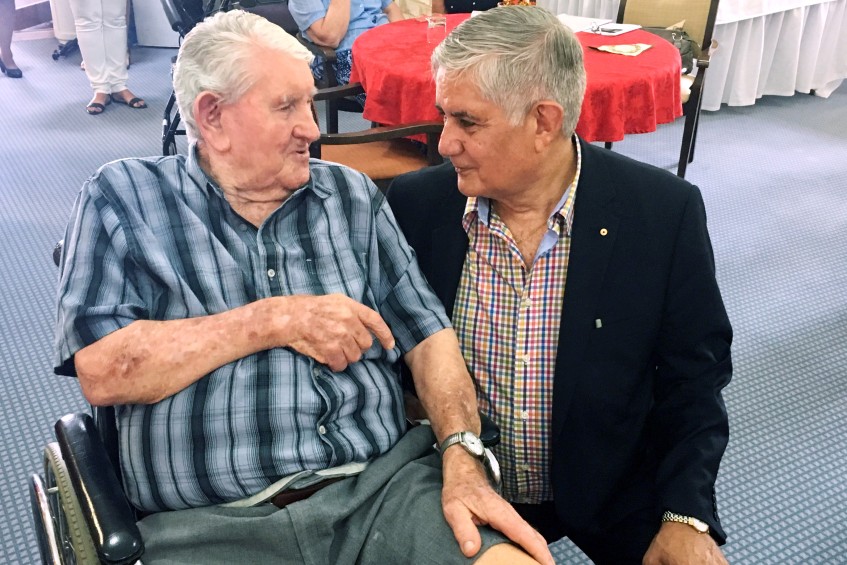Q&A with Ken Wyatt AM, MP – Minister for Aged Care

Minister for Aged Care Hon Ken Wyatt AM said according to the 2018 Budget, and additional $5 billion will be invested, designed to strengthen the sector and make funding sustainable and flexible, while being more responsive to the needs of older Australians. Photo: Health Matters.
The Hon Ken Wyatt AM is a proud Noongar, Yamatji and Wongi man, and was elected in 2010 as the Federal Member for Hasluck, the first Aboriginal Member of the House of Representatives.
In 2015, he became the inaugural First Nations member of the Federal Executive after being sworn in as Assistant Minister for Health, and in January 2017, he again made history as the first Aboriginal Minister to serve in a Federal Government, after being appointed Minister for Aged Care and Minister for Indigenous Health.
His portfolio responsibilities also include Australian Hearing Services and organ and tissue donation, through the Organ and Tissue Authority.
Before entering politics Hon Wyatt worked in the fields of health and education including as District Director for the Swan Education District, and Director of Aboriginal Health in New South Wales and Western Australia.
Not only has Hon Wyatt had an extensive career in health and education, he has also made an enormous contribution to the wider community, particularly in training and mentoring young people.
This was recognised in 1996, when he was awarded the Order of Australia in the Queen's Birthday Honours list. Later, in 2000, Ken was awarded a Centenary of Federation Medal for “his efforts and contribution to improving the quality of life for Aboriginal and Torres Strait Islander people and mainstream Australian society in education and health”.
Ken Wyatt, Minister for Aged Care, was interviewed for Health Matters by Nick Mersiades, Director of Aged Care at CHA.
What is your vision for aged care services ten years from now?
“My aged care vision for 2028 is founded in the landmark 2018 Budget, which will deliver an additional $5 billion investment, designed to strengthen the sector and make funding sustainable and flexible, while being more responsive to the needs of older Australians.
I want people to realise the benefits of preparing early and aiming to live well to 100 or more.
We are charting a roadmap for a decade and beyond, that focuses on the needs of ageing Australians.
My vision is for active ageing through better health, lifelong learning, continuous participation in society, and the provision of security and certainty- A future where ageing Australians are connected to the community, their wisdom sought and their value appreciated, as teachers and students of life.
To achieve this, we must continue building a strong and viable aged care sector, in tandem with an equally strong and qualified workforce. Exciting new technologies will continue complementing care in ways we may not even be able to imagine now.
While I see an increasing growth in home services, I believe the age of people requiring aged care will rise, thanks to better personal planning for their health needs, careers, finances and leisure.
At the same time, I envision the continuing development of strong, sophisticated and integrated 'living communities' of residential care, to assist those with high-level needs.

Minister Wyatt with Eileen Kramer during an event. He said for the first time, the government have ensured that all Commonwealth funding allocated each year for aged care is reinvested back. Photo: Health Matters.
What would you describe as the Government's key aged care achievements?
The Turnbull government's aged care achievements came to the fore in February 2017, with the Increasing Choice In Home Care reforms giving older Australians more options to live independently and receive care when and where they need it.
This means funding now follows the individual; providing them with greater choice and control over their care needs. Ageing Australians can choose and change providers, with more market-driven care already greatly increasing competition and putting downward pressure on fees and charges. They can now move anywhere in Australia and take their home care package with them.
This new national home-care queue system provides transparency, allowing the government and the care sector to better respond to people's needs.
Building on this, the 2018 Budget funds an additional 14,000 high-level packages, on top of 6000 released late last year, with the rollout beginning immediately.
Reflecting the growing demand for in-home care, the overall number of home care packages will grow from 87,000 to 151,000 during the next four years, while another $5.5b will be invested in the Commonwealth Home Support Scheme for two years from July 2018.
This year's Budget is a watershed for reform and funding, including the More Choices For a Longer Life package and a broad response to two major aged care reports, the Tune and Carnell-Paterson reviews.
Residential aged care will see record growth, with 13,500 new residential places and 775 restorative care places to be allocated in 2018, plus a 60m capital investment.
Residents and their families can have confidence and certainty in aged care and the protection of their loved ones-the new Aged Care Quality and Safety Commission will create an independent, one-stop shop to ensure older Australians receive the best possible care.
My Aged Care will be improved, with an investment of $61.7m to make it easier to use, along with simplifying the forms required to apply for aged care services.
There will be a $7.4m trial of community information hubs and personal navigators to help people choose the aged care services that suit their needs.
Choice will also be made easier through a new, user-friendly online aged care provider comparison system.
A new reablement program aims to help people who have had physical or medical challenges-to get back on their feet and live at home for as long as they want, close to family and friends.
There is record investment in mental health support for older Australians, including $82.5m for psychological services in residential aged care and a $20m community pilot program to prevent social disconnection for people over 75. We're also investing $46.1 million in a major program to combat loneliness, through the Community Visitors Scheme. Regional, rural and remote aged care will see $145.7m in significant expansions and upgrades.
Maintaining quality care depends on a strong workforce, so a key achievement this year will be the delivery of Australia's first Aged Care Workforce Strategy, due to the Government by the end of June.
Professor John Pollaers and the Taskforce have been busy reaching out to those working within the aged care sector and senior Australians, to get their views.
Crucial to this is building capacity within the workforce, and a strong focus on staff retention and career paths.
The Taskforce has already achieved much, with the formation of an Industry Reference Committee to guide training and career development, and an Industry Accord for the remote aged care workforce underway.
Parallel to these reforms, the government's 2015 $200m, five-year dementia research commitment promises significant improvements in the management and treatment of this condition.

Minister Wyatt said people over 65 will be encouraged to get active, with significant grants going to local sporting groups to deliver new programs for older Australians. Photo: Health Matters.
What are the key areas that will need to be addressed if the vision is to be achieved? What are the strategies for addressing these key areas?
The reforms of the past two years, particularly the new Budget initiatives, are all focused on achieving our vision. However, underlying this, the key change I want to see is a mindset shift by Australians towards ageing. Ageing is normal, ageing is about living well. We want to age better than many of us currently do, living life to the full as much as we can.
We are beginning this process now, by asking younger Australians to consider their lengthening life expectancies, with the Budget funding the development of checks for 45 year olds and 65 year olds, to help them chart their future health, employment and finance and leisure needs. People over 65 will be encouraged to get active, with significant grants going to local sporting groups to deliver new programs for older Australians.
This will be complemented by a national awareness campaign, encouraging people to seek out information and develop strategies for a longer life. It began just a week after the Budget, centred on the new information website: www.longliveyou.gov.au.
Advancing reform is based on co design between the aged care sector and Government, but I want to see much greater involvement of the broader community in this process, to reflect the development of living communities of the future.
Do you think the provision of quality aged care services is sustainable under current funding arrangements, given the 2015 Intergenerational Report estimated that total Commonwealth aged care expenditure will almost double to 1.7 per cent of GDP by 2055?
The 2018 Budget provides record aged care investment, strengthening the foundation for a sustainable aged care sector and further reform.
There is an additional $5 billion over the next four years, with total funding growing from $81.6b to $86.6b. The Turnbull Government understands that viable aged care providers, dedicated and qualified staff and strong regulation, are the cornerstones of quality care.
For the first time, we have ensured that all Commonwealth funding allocated each year for aged care is invested in aged care. Previously, this unused funding could be returned to Consolidated Revenue each year.
No more. We are committed to investing every cent back into aged care, including increasing both residential places and home care packages.
This is fundamental to our commitment to guaranteeing the essential services on which ageing Australians rely.
